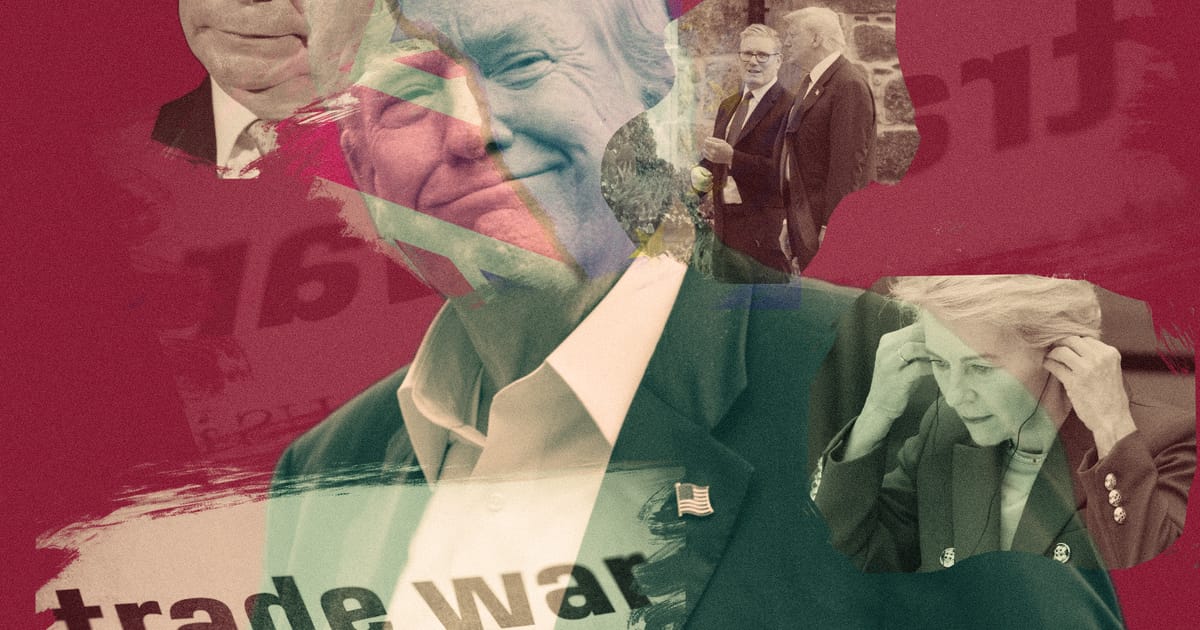

In a world where interconnected economies face evolving challenges, global trade tensions and fiscal concerns demand careful navigation. Recent developments highlight the intricacies of these economic relationships, paving the way for significant discourse and decision-making across continents.
The United Kingdom finds itself at a crossroads, juxtaposed between the implications of Brexit and new trading landscapes. Discussions surrounding trade agreements between the UK and the United States provide insight into the broader ramifications of Brexit, often seen as a facilitator for more direct negotiation channels with the US. However, this potential victory may not wholly align with the aspirations of British political figures such as Keir Starmer, hinting at complex political dynamics that extend beyond merely economic outcomes.
Meanwhile, Germany faces its own set of challenges, as Lars Klingbeil, the Finance Minister, warns of returning budgetary pressures despite substantial legislative efforts to allow increased borrowing for defense and infrastructure needs. As Europe’s largest economy grapples with spending constraints, the need for fiscal responsibility grows ever more pressing, particularly amidst anticipations of global economic slowdowns.
Across the Atlantic, Brazil’s economic landscape is being shaped by diplomatic tussles over tariffs. President Luiz Inácio Lula da Silva remains steadfast in the face of proposed US tariffs, which are poised to rise significantly, stirring the pot of trade dynamics between these nations. The situation is fueled by allegations against Brazil’s former president Jair Bolsonaro, adding layers of political complexity to the economic equation.
In the UK, economic discourse also expands to encompass debates on the taxation of financial institutions, a narrative punctuated by recent comments from Georges Elhedery, the CEO of HSBC. Amidst speculation about potential tax increases on banks, Elhedery underscores the importance of balancing financial pressures to foster sustained growth, emphasizing the already significant tax burdens shouldered by UK banks in comparison with global counterparts.
From an environmental perspective, discussions on sustainability efforts revolve prominently around India’s conglomerate, Adani, and its export program. The company’s claims of contributing to sustainable energy through coal exports have drawn criticism from experts, highlighting a contentious dialogue on environmental practices and their alignment with the United Nations’ sustainable development goals. Such discussions shed light on the broader theme of corporate responsibility in the face of pressing environmental challenges.
Lastly, Germany’s automotive industry finds itself in turbulent waters. Iconic luxury car manufacturers, Porsche and Mercedes-Benz, are experiencing economic pressures as sales in China waver and US tariffs rise. This dual challenge has led to strategic decisions and contemplation of workforce reductions in Germany, signaling a significant pivot point for these renowned brands within the global automotive market.
As trade relations and fiscal policies continue to influence the economic landscape, these narratives reflect an evolving global order. The challenges presented demand not just reactions but also proactive strategies, integrating both immediate economic responses and long-term sustainable planning. Navigating these complexities requires a mindful approach, balancing economic pursuits with social and environmental responsibilities.
Source: {link}
